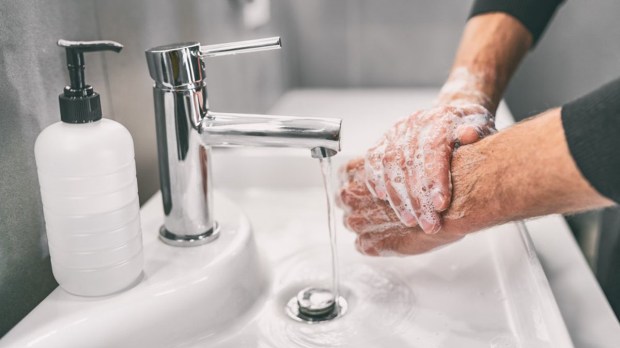It didn’t start out with excessive behaviors. First it was washing my hands longer, avoiding a few larger gatherings, and using hand sanitizer. Before long, however, I was opening drawers with my feet and elbows and letting delivery items sit for days before touching them. My anxiety was incredibly high, and it affected my appetite. After a couple of months, I had lost around 15 lbs and was a prisoner in my home.
I suffer from Obsessive Compulsive Disorder (OCD), a psychological condition that causes intrusive thoughts and obsessions leading to intense anxiety. Relief comes through compulsive behaviors. Obsessions can take many different forms, such as thoughts of contamination or fears of harm coming to family or friends.
Similarly, compulsions can be anything from washing hands, tapping objects, or seeking reassurances. Many times there is no obvious connection between the obsessive thought and the compulsive behavior. It can often be difficult to tell the difference between behaviors caused by OCD and those that are perhaps just overly meticulous. The real difference comes from observing how much distress the obsessive thoughts cause and the degree with which they interfere with your daily life.
As a child, I was known as a worrier. There were many things that caused me anxiety, such as failing at school, severe weather, and my house burning down. It wasn’t until high school, when my obsessions shifted to a religious theme, that it was clear something was wrong. At that point, my OCD took the form of scrupulosity, where I would go to confession multiple times a week and ruminate over whether I had committed a moral or venial sin or said my penance in just the right way.
One of the biggest challenges that the new coronavirus has presented — whether or not you suffer from OCD — is uncertainty. For many of us, it’s been unclear whether spraying certain items is necessary or excessive, for example. Is it safe to handle mail or food packaging? How much distance from someone really is safest? Since the coronavirus is so new, even those without mental illness aren’t sure how to answer these questions. When scientific and medical officials admit that there is much that is unknown about the coronavirus, the difference between obsessive and prudent is very murky.
The challenge for me is that OCD demands certainty. I must know that there aren’t any germs on my hands or that the person who just coughed is not sick. Life in general offers no guarantees, of course, and so things become more difficult when I’m faced with true uncertainty.
A pandemic can also cause flare ups in non-contamination themed OCD. For example, if I suffer from scrupulosity, I might find that uncertainties regarding the lethality of the coronavirus cause anxiety over dying in a state of mortal sin. Again, the difference between a healthy concern and obsession can be difficult to discern.
Unfortunately, mental illness does not spare those with faith. Due to a general lack of understanding regarding mental health, there are significant challenges for Christians who experience anxiety, depression, or other disorders. One of the most common misunderstandings among those of faith is that the symptoms of mental illness are caused by a lack of faith. There is a tendency among some Christians to think that we can relieve anxiety simply by praying. We might also believe that struggles with depression are due to despair of God’s love.
Although mental and spiritual health do affect one another, we must not make the mistake of thinking that one can take the place of the other. Even holy saints, such as St. Ignatius of Loyola, St. Alphonsus Liguori, and St. Therese of Lisieux may have suffered from obsessive and anxiety disorders. Catholics may also find consolation in praying to St. Dymphna, the patron saint of nervous disorders and mental illness. We need to remember that it is perfectly acceptable to need both a spiritual director and a therapist.
Never forget that there is help available if you struggle with mental health disorders. We must not fear that somehow seeking out a therapist means we have given up on God. The Father in Heaven who created us also gave us the tools we need for healing. We have the sacraments for our souls, doctors for our bodies, and therapists for our minds. Thanks be to God, I was able to find help even in the midst of a pandemic. Through teletherapy, I began treatment that has slowly helped me gain greater control over my obsessions. I still have work to do, but I know that God will guide me through this time and I will look back on this period as a time of grace.

Read more:
3 Misconceptions about seeking therapy that Christians may have

Read more:
Mental health is deeply connected to spiritual health — these resources can help with both

